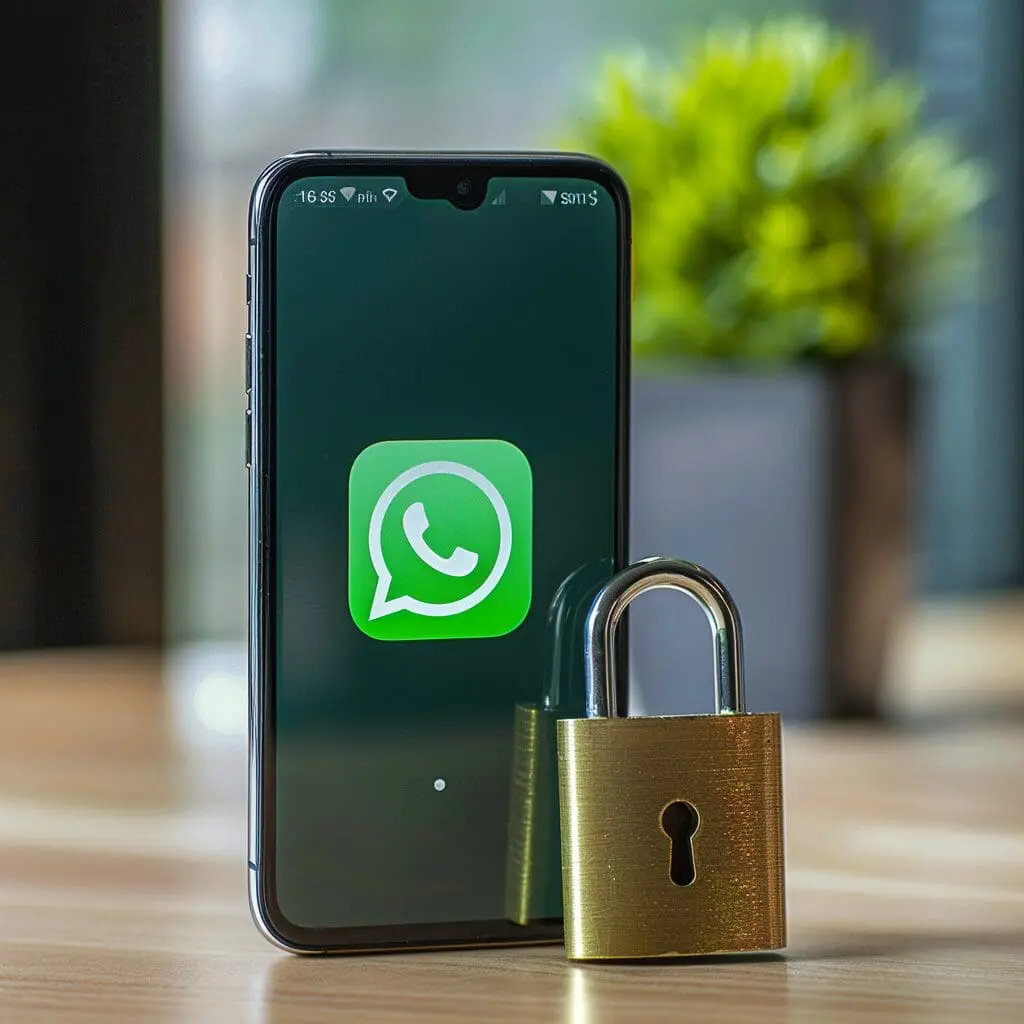

At the core of the global debate on internet freedom, WhatsApp apps stand out as key players in promoting secure and private communication. Despite facing regulatory challenges and bans in countries like Iran, North Korea, and China, WhatsApp’s dedication to end-to-end encryption highlights its role as a secure messaging app committed to privacy. Beyond text, its voice and video calls offer a secure way for users to connect globally, while group chats provide a private space for both personal users and businesses to communicate confidentially. This position underscores the critical balance between security and digital freedom, as WhatsApp continues to navigate the complex terrain where privacy and freedom of speech confront government surveillance and censorship. The platform’s commitment to encryption not only reinforces its significance in the debate over internet freedom and digital rights but also emphasises the importance of secure communication tools in today’s digital age.
In an era of increasing government surveillance and censorship, WhatsApp represents a crucial balance between user security and the fight for digital freedom. Despite facing harsh regulations and bans in countries with stringent internet control, WhatsApp remains a secure messaging platform thanks to its end-to-end encryption. This encryption ensures that only the communicating users can read the messages, with each message secured using a unique encryption key. Essentially, this acts like a private key, making it impossible for outsiders, including WhatsApp itself, to access the content of the conversations. This level of security is vital not just for private conversations but also for protecting business communications in environments where privacy is under constant threat. The standoff between WhatsApp and governmental controls underscores a wider debate on how much power authorities should have to oversee digital spaces without violating individual rights and the sanctity of private communications.
WhatsApp’s defence against surveillance and censorship is anchored in its commitment to end-to-end encryption, a feature making it a leader among encrypted messaging apps. This technology ensures that personal messages remain confidential, accessible only to the communicating parties. It renders it virtually impossible for authorities or even WhatsApp itself to access these conversations, elevating the protection of personal messages to new heights. By also offering features like disappearing messages, WhatsApp not only champions the right to private communication but also sets a benchmark in the global discourse on digital privacy rights. As governments increasingly seek to compromise encryption under the pretence of national security, WhatsApp’s steadfast stance on end-to-end encrypted messaging highlights a pivotal moment in the defence of digital privacy, challenging the trade-offs that menace the foundational principles of internet freedom and individual security.
Bans and restrictions on platforms like WhatsApp highlight the deep-rooted tensions in our digital era, especially when it comes to voice and video calls. These tensions reveal a complex battle between the quest for security and the need for freedom, positioning WhatsApp among the best secure messaging apps. Such measures underscore the paradox where governments aim to shield their citizens but end up compromising their privacy by restricting digital freedoms. These actions threaten the confidentiality of text messages and voice communications, ensuring that only the intended recipient should access WhatsApp messages. They also emphasize the crucial role of encrypted services in protecting personal freedoms against rising governmental surveillance. This scenario accentuates the need for a balanced digital policy, respecting user privacy while catering to legitimate security concerns.
Despite stringent bans and censorship in various countries, millions of users continue to rely on encrypted apps like WhatsApp for their primary communication, using features such as group chats to stay connected. This reliance highlights not only the platform’s importance in everyday communication but also individuals’ commitment to maintaining their freedom of speech and privacy. By using VPNs and other methods to circumvent restrictions, users demonstrate a collective determination to protect their rights to free communication. WhatsApp’s steadfast dedication to end-to-end encryption, ensuring that messages are read by only the intended recipients and not even the service provider, plays a pivotal role in this context. It provides a secure and private channel within messaging services, allowing users to express themselves freely, even in repressive environments. Similar to Facebook Messenger, which also offers encrypted options, having a WhatsApp account becomes a testament to the human spirit’s desire for connection and liberty. This resilience underscores the critical role of encrypted communication platforms in the broader fight for digital rights and internet freedom, where only the intended recipients can access the messages, safeguarding privacy and freedom of expression.
WhatsApp, a leading secure messaging app, stands out for its strict adherence to end-to-end encryption, positioning it at the forefront of safeguarding sensitive communications and data in an era marked by escalating cyber threats and surveillance. This unwavering commitment goes beyond a mere feature; it’s a core principle ensuring that conversations remain private between the sender and the receiver, protected from interception by third parties, including the platform itself. Unlike other messaging apps that may not prioritize security as highly, WhatsApp provides a haven for encrypted messaging, especially crucial in scenarios where business transactions and personal communications face risks from cyber espionage and data breaches. The app’s encryption systems offer essential protection, preserving the privacy of individual users and the confidential operations of businesses in competitive or politically sensitive environments. Moreover, for those concerned about the security of their cloud storage account, WhatsApp’s model of strong encryption sets a high standard for digital communication in the 21st century, acting as a defence against unauthorised access and establishing a benchmark for secure digital interactions.
Disputes over encrypted messaging apps, including those involving WhatsApp, go beyond the boundaries of a single country, impacting users globally. Such debates are not only about national security but also involve critical human rights issues like privacy and freedom of expression, making them relevant to discussions about the best encrypted messaging apps. The worldwide web and many messaging apps mean that a policy shift or regulation in one nation could influence Android users and others across the planet. The conflict between governments and companies concerning encryption highlights the necessity for global dialogue. This dialogue should aim to balance the need for a secure connection, preventing security breaches, with the right to private messaging. It’s clear there’s an urgent need for international standards that maintain the integrity of encryption, ensuring the best encrypted messaging apps protect WhatsApp data and other information, while also respecting each country’s sovereignty and individual rights.
The ongoing debate between privacy and security is significantly highlighted by the challenges in compromising end-to-end encryption methods. Encryption, especially end-to-end encrypted communication, acts as a crucial shield for individual privacy, facilitated by secure messaging apps like WhatsApp that use a private encryption key to safeguard messages. This level of encryption is vital in our digital world, ensuring secure communication. However, national security agencies argue that such rigorous privacy protections, particularly the use of a private key in end-to-end encryption, impede their efforts in fighting crime and terrorism. This dilemma raises a pressing question: how can society find a balance between protecting private communications through advanced encryption methods and meeting the critical demands of national security? The situation with WhatsApp firmly defending its encryption practices showcases this global concern, emphasising the challenge of balancing privacy rights with the obligations of societal security.
In times of geopolitical unrest, natural disasters, or global pandemics, encrypted messaging apps like WhatsApp transcend their role as mere communication tools, becoming vital lifelines. These platforms, with their secure messaging capabilities, connect individuals to their loved ones and communities to essential information. WhatsApp’s agility and end-to-end encryption ensure that all forms of communication, from personal updates and cries for help to broadcasts of critical information, are securely transmitted as encrypted messages without any interference. This becomes particularly crucial when traditional communication infrastructures are compromised or surveilled. Encrypted messaging apps like WhatsApp become indispensable, integrating themselves into the societal fabric by facilitating the secure flow of encrypted data and support in challenging times. It’s in these moments of uncertainty that the true value of secure messaging and the importance of encrypted message transmission in maintaining individual freedom and enhancing collective resilience is most clearly seen.

This website uses cookies to improve your experience. Choose what you're happy with.
Required for the site to function and can't be switched off.
Help us improve the website. Turn on if you agree.
Used for ads and personalisation. Turn on if you agree.
This website uses cookies to improve your experience. Choose what you're happy with.
Required for the site to function and can't be switched off.
Help us improve the website. Turn on if you agree.
Used for ads and personalisation. Turn on if you agree.